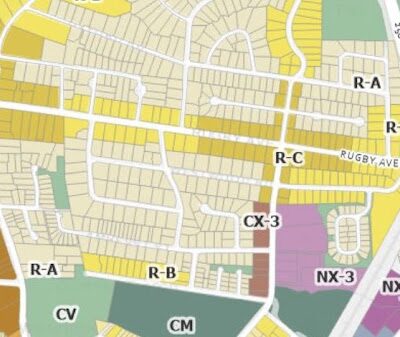A herd of new neighbors may soon be grazing in the city’s backyards. At its August 16 meeting, City Council supported an amendment to an ordinance that would allow miniature goats within city limits.
|
Won’t you be my neighbor? If City Council passes an amended ordinance on September 7, you can house three of these critters in your yard. |
“I don’t see any compelling reason why we shouldn’t have goats in the city,” said Councilor David Brown, who, it turns out, had a goat as a child.
The current city code states that livestock—horses, cows, mules, bulls, sheep, goats or hogs—are not allowed to run at large in the city. According to a staff report, the ordinance to prohibit goats within city limits resulted from a resident’s request in the 1970s. No discussion had taken place since then.
“I think Charlottesville should allow goats because they allow home gardens and they allow chickens, and people should be able to produce as much food as they want on the property they pay taxes for,” says Meghan Keith-Hynes, founder of The Charlottesville Goat Justice League.
Keith-Hynes moved to the city two years ago from North Garden and was impressed by the number of city residents who tended their own urban gardens and raised egg-laying hens. “It seemed to me that small goats would really complete the urban food production picture,” says Keith-Hynes, who raised the idea of permitting miniature goats during a previous council meeting.
Staff looked at similar ordinances in cities like Berkeley, California, and Austin, Texas. Ultimately, staff decided the city that really got its goat was Seattle, and used that city’s ordinance to guide the local amendment. “I know that City Council has a vision of Charlottesville as a green city,” says Keith-Hynes. “And it would be an easy step for [councilors] to take to promote that vision.”
Laura Brown, a League member, advocated for the change as a sustainable practice.
“We live on .2 acres and we live as simply and as sustainably as we can,” she told Council. “In addition to having chickens and honeybees in the garden, it would really mean a lot to us to be able to have two miniature goats. We’d keep these goats to produce milk and cheese for our family.” The goats’ waste, she added, would be used to fertilize the garden.
“We believe that permitting miniature goats would increase our local resilience and help us be a leader in promoting sustainability,” said Brown.
There are restrictions, of course. Miniature goats, which usually weigh less than 100 pounds, must be dehorned, kept on property owners’ land and not allowed to roam free. Males must be neutered, and no more than three miniature goats will be allowed on a single piece of property at one time. At the council meeting—during which the late-night music level was lowered to 55 decibels for the neighborhood commercial corridor—goat noise was not discussed as a concern. Council will vote on the amended ordinance at its September 7 meeting.
C-VILLE welcomes news tips from readers. Send them to news@c-ville.com.






